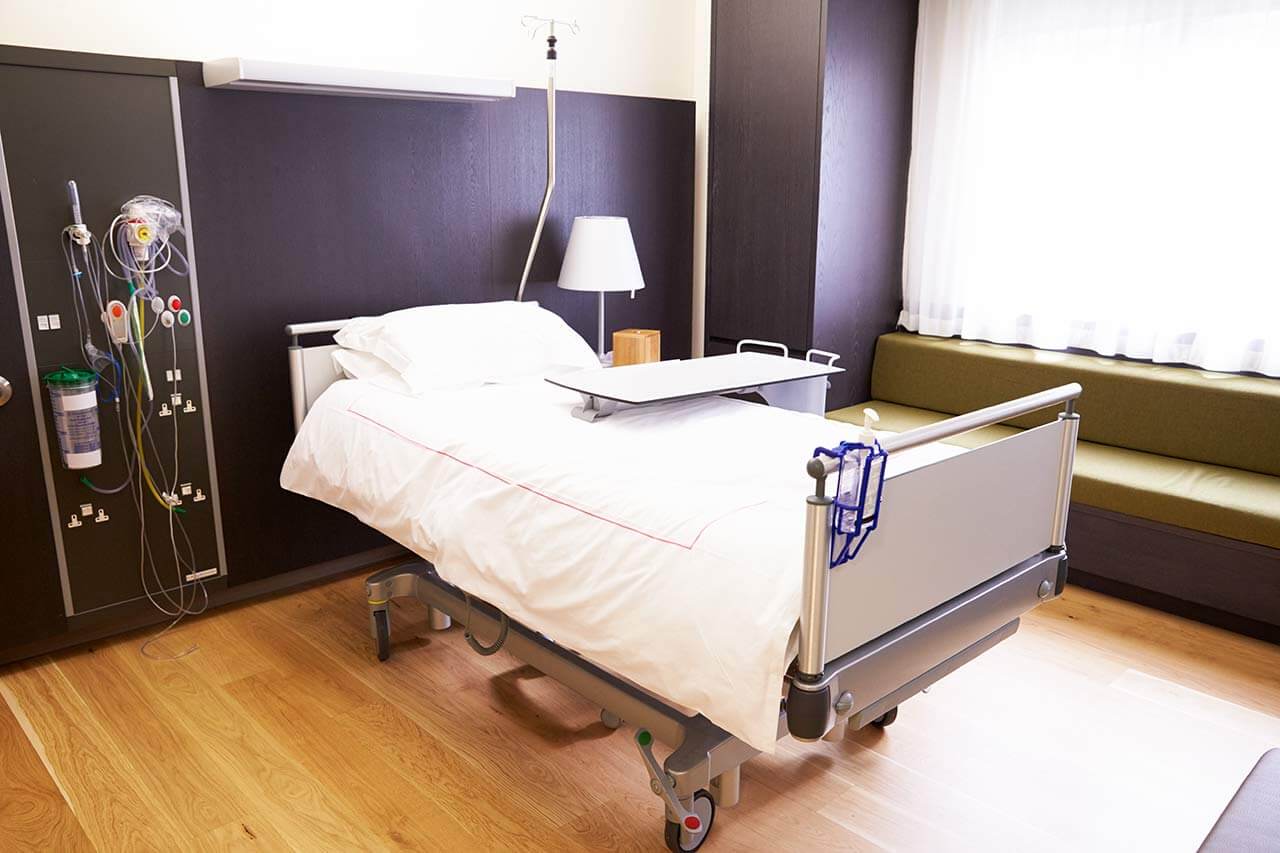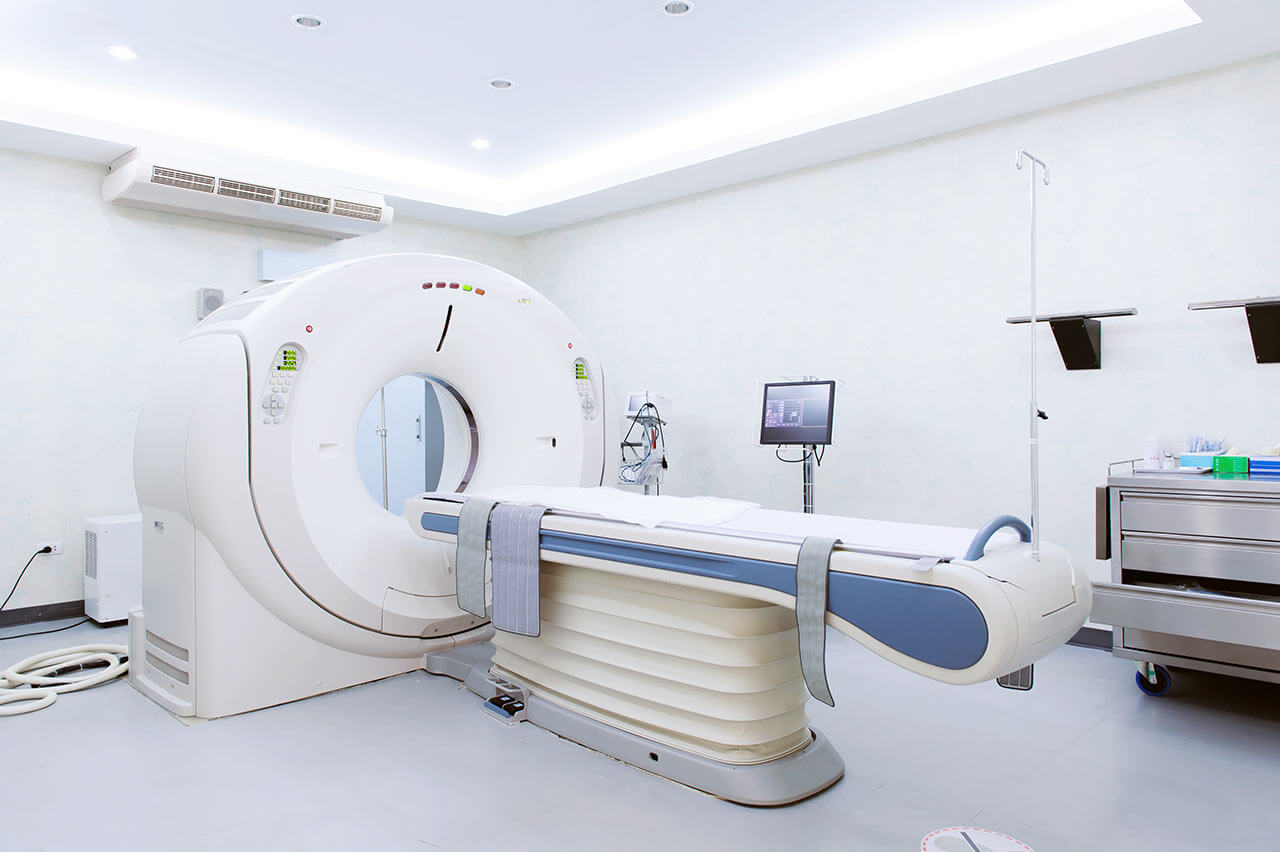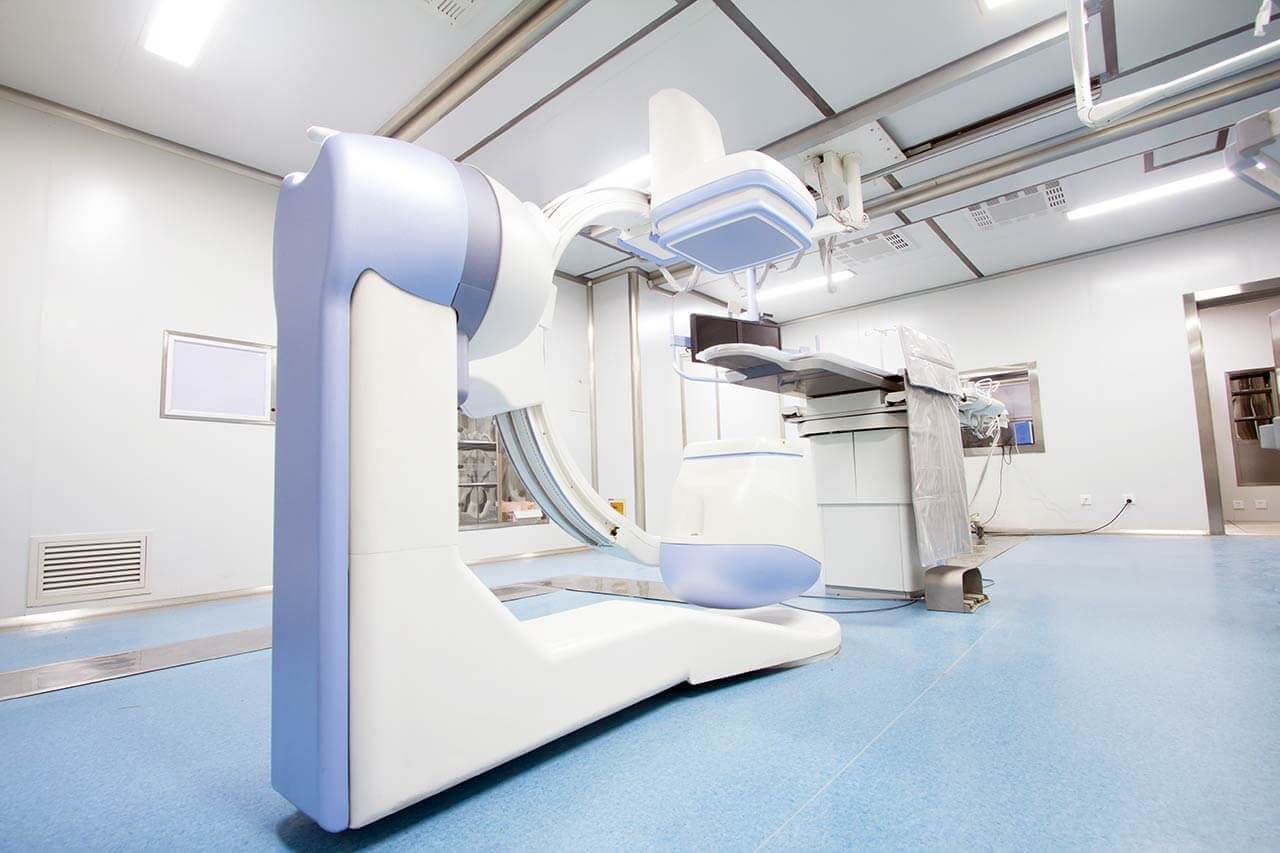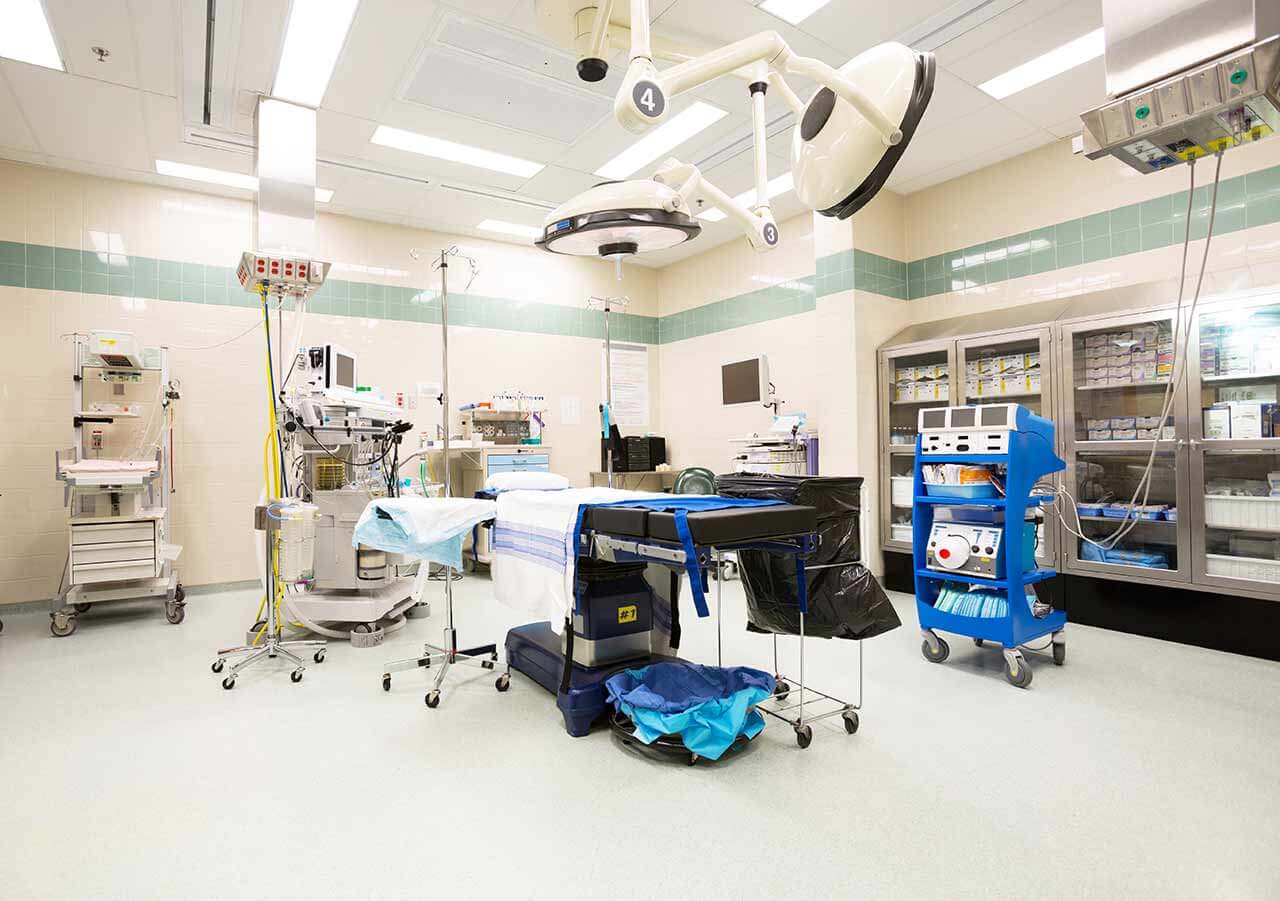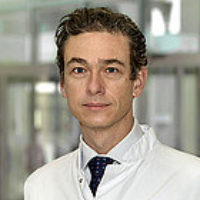
About the Department of Adult and Pediatric Neurosurgery, Spinal Surgery at Charite University Hospital Berlin
The Department of Adult and Pediatric Neurosurgery, Spinal Surgery at the Charite University Hospital Berlin offers all the possibilities of modern surgical treatment for diseases of the central and peripheral nervous system in patients of all ages. More than 6,000 surgical procedures are performed annually in the department's high-tech operating rooms. Both planned and emergency neurosurgical procedures are performed here. The department's surgical team focuses on patients with cerebrovascular diseases, brain and skull base tumors, spine and spinal cord diseases, cerebrospinal fluid circulation disorders, and pathologies of the peripheral nervous system. The department's team of physicians also has extensive experience in functional neurosurgery: specialists perform deep brain stimulation for movement disorders, spinal cord stimulation for back pain, and vagus nerve stimulation for epilepsy. The department works closely with neurologists, radiologists, and nuclear medicine specialists to provide patients with the highest level of comprehensive medical care. The department is recognized as one of the top neurosurgical centers in Germany and beyond, as evidenced by consistently high treatment success rates and numerous quality certifications, including the German Cancer Society (DKG) Certificate, the German Spine Society (DWG) Certificate, and the Leading Medicine Guide Certificate.
The Head Physician of the department is Prof. Dr. med. Peter Vajkoczy. The specialist is widely known in medical circles and has a well-deserved reputation as one of the best neurosurgeons in Europe. Each year, Prof. Peter Vajkoczy performs more than 800 operations on the brain, spine, and peripheral nervous system. The neurosurgeon has many years of experience in treating complex pathologies of the nervous system. Working with advanced equipment and applying innovative neurosurgical techniques, the specialist ensures excellent treatment results.
The team of neurosurgeons in the department has exceptional experience in the treatment of vascular diseases of the nervous system. Special attention is paid to the surgical treatment of brain aneurysms, cerebrovascular accidents, and vascular malformations of the brain and spinal cord. Surgical procedures for the above-mentioned pathologies are performed using innovative imaging equipment: Zeego® intraoperative angiography, AIRO© intraoperative computed tomography, and intraoperative magnetic resonance imaging. For the treatment of brain aneurysms, the department's specialists perform microsurgical clipping or occlusion of the aneurysm with subsequent bypass, the latter being the most effective treatment option for large aneurysms located in a difficult-to-reach area of the brain. For patients with chronic cerebral circulation disorders, the neurosurgeons of the department offer treatment with the method of extracranial-intracranial bypass, the purpose of which is to normalize the blood supply to the brain in order to prevent stroke. The department also specializes in the surgical treatment of Moyamoya disease, which is characterized by progressive stenosis and occlusion of the cerebral arteries. The pathology is most often detected in childhood. The neurosurgeons perform treatment using direct and indirect bypass techniques, and in some cases combine both techniques. The department also treats patients with vascular malformations of the brain and spinal cord: dural arteriovenous fistulas, arteriovenous malformations, and cavernomas. Depending on the individual clinical situation, image-guided interventional procedures, open surgery, or radiosurgical treatment using the CyberKnife method are used to remove the vascular malformation.
The priority areas of work of the department's neurosurgical team also include the treatment of tumors of the brain, skull base, and spine. The department is part of the Charite Comprehensive Cancer Center and has been certified by the German Cancer Society (DKG) since 2012. The department's specialists perform highly precise operations to resect tumors of the central nervous system. The specialists meet weekly in a tumor board that includes neurologists, neuroradiologists, oncologists, radiation therapists, otolaryngologists, oral and maxillofacial surgeons, and ophthalmologists. Together, these physicians review the patient's diagnostic findings and develop an individualized treatment plan. The department's neurosurgeons operate primarily on patients with glioblastomas, astrocytomas, oligodendrogliomas, acoustic neuromas, meningiomas, pituitary adenomas and craniopharyngiomas, and brain metastases. Each surgical procedure is carefully planned using MRI and PET scans. During surgery, advanced surgical microscopes, neuronavigation systems, and intraoperative and electrophysiological monitoring devices are used. These technologies allow for effective tumor resection while providing a high safety profile for the patient. After surgery, the patient receives comprehensive care. Follow-up examinations are performed to assess the effectiveness of the surgical intervention.
The department is certified by the German Spine Society (DWG) as a specialized Center for Maximum Care Spinal Surgery. The medical facility has accumulated many years of experience in the surgical treatment of degenerative diseases of the spine (spondyloarthrosis, osteochondrosis, spinal stenosis, scoliosis, and kyphosis), herniated discs, spinal fractures, spinal tumors, inflammatory spinal diseases (spondylodiscitis and spondyloarthritis). Imaging diagnostics are of crucial importance during the examination: CT, MRI and PET scans and other tests. Almost all spinal operations are performed using minimally invasive surgical techniques, which significantly shortens the postoperative recovery period. Surgical procedures are performed in operating rooms equipped with the latest technology: specialists operate on patients using innovative surgical microscopes, intraoperative electrophysiological monitoring systems, the O-Arm neuronavigation system, the 3D C-Arm device, and other technologies.
The department's main clinical activities are as follows:
- Diagnostics and surgical treatment of vascular diseases of the central nervous system
- Diagnostics and surgical treatment of brain aneurysms
- Diagnostics and surgical treatment of cerebrovascular accidents
- Diagnostics and surgical treatment of vascular malformations of the brain and spinal cord: dural arteriovenous fistulas, arteriovenous malformations, and cavernomas
- Diagnostics and surgical treatment of brain and skull base tumors
- Diagnostics and surgical treatment of brain tumors
- Diagnostics and surgical treatment of glioblastoma
- Diagnostics and surgical treatment of astrocytoma
- Diagnostics and surgical treatment of oligodendroglioma
- Diagnostics and surgical treatment of skull base tumors
- Diagnostics and surgical treatment of acoustic neuroma
- Diagnostics and surgical treatment of meningioma
- Diagnostics and surgical treatment of pituitary adenoma
- Diagnostics and surgical treatment of craniopharyngioma
- Diagnostics and surgical treatment of brain metastases
- Diagnostics and surgical treatment of brain tumors
- Diagnostics and surgical treatment of diseases of the peripheral nervous system
- Diagnostics and surgical treatment of upper extremity compression syndromes
- Diagnostics and surgical treatment of carpal tunnel syndrome
- Diagnostics and surgical treatment of cubital tunnel syndrome and Guyon's canal syndrome
- Diagnostics and surgical treatment of thoracic outlet syndrome
- Diagnostics and surgical treatment of lower extremity and trunk compression syndromes
- Diagnostics and surgical treatment of meralgia paresthetica
- Diagnostics and surgical treatment of lesions of the common peroneal nerve
- Diagnostics and surgical treatment of saphenous neuralgia (nervus saphenus)
- Diagnostics and surgical treatment of Morton's metatarsalgia
- Diagnostics and surgical treatment of foot nerve compression syndromes
- Diagnostics and surgical treatment of traumatic injuries of the peripheral nerves and brachial plexus
- Diagnostics and surgical treatment of peripheral nerve tumors
- Diagnostics and surgical treatment of neuropathic pain in peripheral nerve lesions
- Diagnostics and surgical treatment of upper extremity compression syndromes
- Diagnostics and surgical treatment of cerebrospinal fluid circulation disorders
- Diagnostics and surgical treatment of hydrocephalus, including normal pressure hydrocephalus
- Diagnostics and surgical treatment of Arnold-Chiari malformation
- Functional neurosurgery
- Deep brain stimulation for movement disorders
- Spinal cord stimulation for back pain
- Vagus nerve stimulation for epilepsy
- Surgical treatment of trigeminal neuralgia
- Diagnostics and surgical treatment of spinal diseases
- Diagnostics and surgical treatment of degenerative spinal diseases: spondyloarthrosis, osteochondrosis, spinal stenosis, scoliosis, and kyphosis
- Diagnostics and surgical treatment of herniated discs
- Diagnostics and surgical treatment of spinal fractures
- Diagnostics and surgical treatment of spinal tumors
- Diagnostics and surgical treatment of inflammatory spinal diseases: spondylodiscitis and spondylitis
- Diagnostics and surgical treatment of diseases of the nervous system in children and adolescents
- Diagnostics and surgical treatment of hydrocephalus
- Diagnostics and surgical treatment of craniosynostosis
- Diagnostics and surgical treatment of spasticity
- Diagnostics and surgical treatment of Arnold-Chiari malformation
- Diagnostics and surgical treatment of arachnoid cysts
- Diagnostics and surgical treatment of central nervous system tumors
- Diagnostics and surgical treatment of astrocytoma
- Diagnostics and surgical treatment of medulloblastoma
- Diagnostics and surgical treatment of ependymoma
- Diagnostics and surgical treatment of craniopharyngioma
- Diagnostics and surgical treatment of pineal tumors
- Diagnostics and surgical treatment of malformative tumors: dysembryoplastic neuroepithelial tumors, ganglioglioma, and hamartoma
- Diagnostics and surgical treatment of intramedullary and extramedullary spinal tumors
- Diagnostics and surgical correction of spinal malformations
- Diagnostics and surgical correction of spina bifida aperta
- Diagnostics and surgical correction of spina bifida occulta
- Diagnostics and surgical correction of diastematomyelia
- Diagnostics and surgical correction of lipomyelomeningocele
- Diagnostics and surgical correction of dermal sinus
- Diagnostics and surgical correction of occult spinal dysraphism
- Diagnostics and surgical treatment of other diseases of the nervous system in adults and children, other treatment methods
Curriculum vitae
Higher Education, Postgraduate Training and Professional Career
- Since 2007 Professor and Head Physician, Department of Adult and Pediatric Neurosurgery, Spinal Surgery, Charite University Hospital Berlin.
- Since 2006 Associate Professorship, Department of Neurosurgery, University of Heidelberg.
- 2001 - 2006 Senior Physician, Department of Neurosurgery, University Hospital Mannheim and University Hospital Heidelberg.
- 2001 Habilitation in Neurosurgery.
- 1995 - 2001 Residency, Department of Neurosurgery, University Hospital Mannheim.
- 1992 - 1996 Thesis defense, Institute for Surgical Research, Ludwig Maximilian University of Munich.
- 1988 - 1995 Medical studies, Ludwig Maximilian University of Munich.
Activities in Scientific Societies, Honors, and Awards
- 2003 Research Award for Young Neurosurgeons of the World Federation of Neurosurgical Societies (WFNS).
- 2003 Wolfgang Hoffmeister Prize, Faculty of Clinical Medicine in Mannheim, University of Heidelberg.
- 2002 Research Prize, German Academy of Neurosurgery.
- 2001 Hemedex Pioneer Investigator Award.
- 2001 Hermann Rein Award, German Society for Microcirculation and Vascular Biology (GfMVB).
- 1998 Aesculap Research Award, European Association of Neurosurgical Societies (EANS).
- 1998 Pharmacia & Upjohn Young Investigator Award, American Association for Cancer Research (AACR).
- 1998 Reisepreis, American Association for Cancer Research (AACR).
- 1990 - 1995 Scholarship from the German Academic Scholarship Foundation.
Clinical Interests
- Microsurgical procedures for brain tumors.
- Surgical treatment of skull base tumors, pituitary adenomas, and acoustic neuromas.
- Surgical treatment of vascular malformations of the brain: aneurysms and angiomas.
- Minimally invasive procedures for herniated discs and spinal stenosis.
- Stabilization procedures for spinal deformities.
- Surgical treatment of spinal tumors.
- Surgical treatment of epilepsy.
- Surgical procedures for pathologies of the peripheral nervous system.
Research Interests
- Angiogenesis.
- Microcirculation.
- Acute and chronic nervous tissue ischemia.
- Neuro-oncology.
- Biology of endothelial cells.
Photo of the doctor: (c) Charité – Universitätsmedizin Berlin
